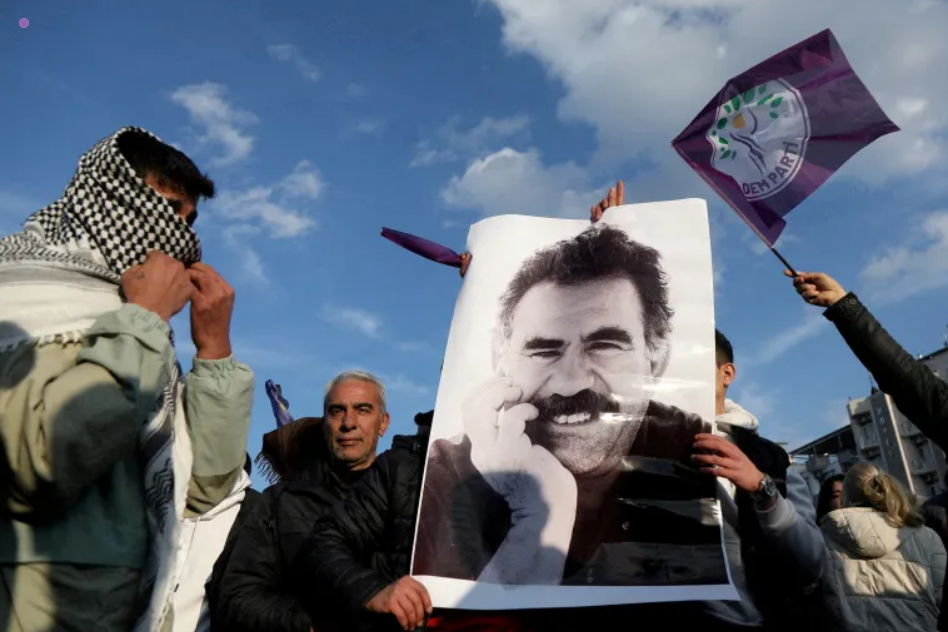(Al Jazeera Media Network) When Abdullah Ocalan said his Kurdistan Workers’ Party, or PKK, should lay down its arms and disband after more than four decades of conflict with the Turkish state and tens of thousands of deaths, there was an instant look across the border to Syria.
Syria’s northeast is largely controlled by the Syrian Democratic Forces (SDF), a Kurdish-led military force Turkiye has repeatedly fought against over the past decade.
The SDF is led by the People’s Protection Units (YPG), which Turkiye views as a “terrorist” group and the Syrian branch of the PKK. The United States, however, has backed the YPG in Syria to fight against ISIL (ISIS).
Since the fall of Syrian President Bashar al-Assad in December, the SDF has been negotiating with the new Turkish-allied government in Damascus over what its future role in a newly unified Syria and as a military force will be and what kind of governance will extend to the northeast of the country.
The removal of the PKK from the equation will likely facilitate the SDF’s integration with Damascus, analysts told Al Jazeera.
“For the SDF, it makes it much easier to talk with the government in Damascus and also to de-escalate their relations with Turkey,” said Wladimir van Wilgenburg, an analyst of Kurdish politics based in Erbil, the capital of the autonomous Kurdish region of northern Iraq.
While the SDF rejects Turkiye’s assertions that it is the Syrian arm of the PKK, analysts said the groups have strong links.
https://www.aljazeera.com/features/2025/5/14/what-does-the-pkks-disarming-mean-for-its-regional-allies


